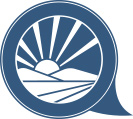
Local nonprofit works to build school in Sierra Leone
By Helen Lyons
Four decades ago, Sierra Leoneans arriving in the Washington metro area of the United States found a country that was “cold,” and unwelcoming. “People here go to work, go home, and close their doors,” Al-Hassan Korona said.
It was difficult for the newly arrived immigrants to assimilate into a culture where they didn’t know anyone and didn’t speak the language, which is one of the reasons that Tegloma was formed.
“It’s a local culture organization for Sierra Leoneans who are living here in the United States,” Korona, who serves as chairman of the organization’s board, explained. “When people came here, they were very lonesome; they were far away from home. They didn’t have local support.”
However, over the years Tegloma has become so much more than that. While the nonprofit, which takes its name from a Mende word for “progress,” has had its roots in Takoma Park, since its inception, the organization has always kept close ties to home by sending money, food and medical and school supplies to the country over the decades as well as sponsoring the education of orphans.
Through the financial support of its members and donors, Tegloma has assisted in the resettlement of refugees, rebuilt medical clinics, helped with water well projects in villages and issued over 250 scholarships to Sierra Leonean students.
Now Tegloma embarks upon its most ambitious aid project yet—the construction of Tegloma International School in Bo, Sierra Leone, to educate underprivileged children from the elementary to high school grades. Korona estimates they’ll need to raise at least $650,000 to construct the school, and the group also aims to establish a scholarship fund of $350,000.
“After the rebel war, some of the parents died,” said Braima Moiforay, Tegloma’s president. “Some of the children were left on their own. If you don’t pay school fees, they don’t allow you in school. It’s not like over here.”
This was one of the reasons that Tegloma began its sponsorship of orphans. “Tegloma had to adopt those kids,” Moiforay said, “to help with their education, and now we want to build a structure for it, a school for them to go to.”
It’s an ambitious goal—raising a million dollars—but Korona is hopeful. “The most rewarding aspect is the community aspect,” he said. “The friends we make, the relationships we build, that kind of dedication to others… When things happen in the community, we’re able to raise funds.”
This article appeared in the December 2016 edition of the Takoma Park Newsletter. The Takoma Park Newsletter is available for download here.
